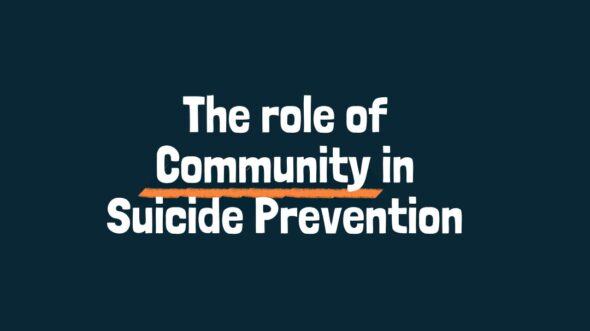The Role of Community in Suicide Prevention
18 July 2024

18 July 2024

Suicide remains a critical public health issue across the world, and here in the North East of England is no exception. Despite the Government’s commitment to reform the Mental Health Act and make it fit for purpose, we cannot rely on policy alone. The strength of local communities can play a pivotal role in addressing and preventing this tragic phenomenon. Here’s how…
Understanding the Problem
The North East has faced significant challenges related to mental health and suicide.
Economic hardships, social isolation, and limited access to mental health services are among the factors contributing to higher suicide rates in our region.
According to the Office for National Statistics, the North East consistently reports one of the highest suicide rates in England. In this context, community-based approaches to suicide prevention have become increasingly vital.
Building a Supportive Community
Communities can provide a safety net for individuals struggling with suicidal thoughts.
A supportive community fosters an environment where people feel connected and valued, reducing feelings of isolation and hopelessness. Local initiatives, such as support groups, community centres, and awareness campaigns, play a crucial role in this effort.
The Power of Peer Support
Peer support is an effective strategy in suicide prevention. People who have experienced similar struggles can offer unique empathy and understanding.
In the North East, peer support groups like Andy’s Man Club, the Rise Up Project, and our own Headlight Hub provide platforms for individuals to support each other.
These groups not only offer emotional support but can also give individuals a sense of purpose and hope for a brighter future.
Training and Education
Education is another critical component of community-based suicide prevention. Training programmes that teach community members to recognise the signs of suicidal behaviour and how to respond can save lives.
Headlight Project offers workshops and training sessions for teachers, employers, and community leaders. These programmes equip individuals with the skills to identify at-risk individuals and introduce actions for a suicide-safer community and workplace.
Moving Forward
While community efforts in the North East are making significant strides in suicide prevention, there is always more work to be done. Continued funding and support for these initiatives are essential. Additionally, increasing collaboration between community organisations and healthcare providers can further enhance the effectiveness of suicide prevention strategies.
How You Can Help
Every member of the community can contribute to suicide prevention. Here are some ways to get involved:
The role of the community in suicide prevention cannot be overstated. In the North East of England, local initiatives, peer support, and education are key components of a comprehensive strategy to reduce suicide rates and support those in need. By fostering a strong, connected, and informed community, we can create a safer and more supportive environment for everyone.
Follow us on Social Media.

Subscribe for the latest newsletter updates.